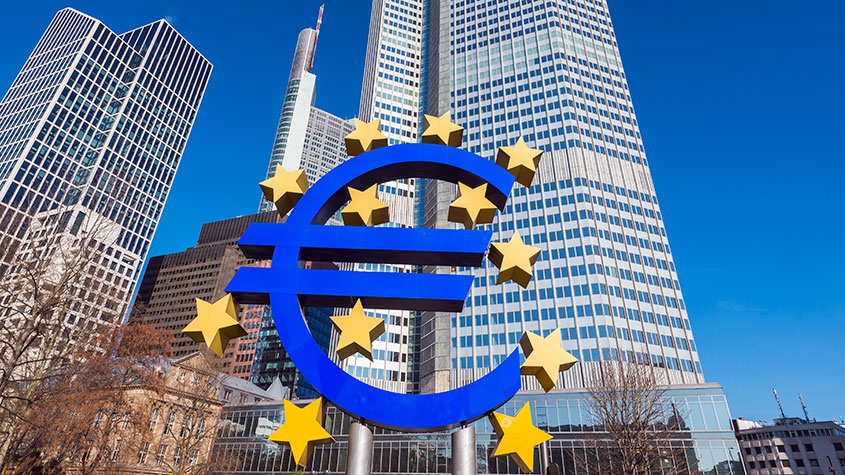The secret behind the Irish economic miracle
Ireland's economic miracle – at Moneyweek.co.uk - the best of the week's international financial media.
Get the latest financial news, insights and expert analysis from our award-winning MoneyWeek team, to help you understand what really matters when it comes to your finances.
You are now subscribed
Your newsletter sign-up was successful
Want to add more newsletters?

Twice daily
MoneyWeek
Get the latest financial news, insights and expert analysis from our award-winning MoneyWeek team, to help you understand what really matters when it comes to your finances.

Four times a week
Look After My Bills
Sign up to our free money-saving newsletter, filled with the latest news and expert advice to help you find the best tips and deals for managing your bills. Start saving today!
In a generation Ireland has been transformed. Whereas once it had a poor agricultural economy with high emigration Ireland now has the fourth highest effective GDP per head in the industrial world and a per capita income 11% higher than the UK. But there is a widely held belief that Ireland's success is attributable to funds transfers from the European Union. This is a popular misconception. Let me explain.
If subsidies and regional aid were a major cause of economic growth, you would expect to see two things. First, the highest growth years would coincide with the periods when Ireland was receiving the greatest transfers. Second, other poor countries, which receive the most subsidies, would experience high economic growth rates. The facts suggest the opposite.
Ireland began receiving subsidies after joining the EEC in 1973 when it was the community's poorest nation. For 13 years the Irish economy was feeble, recording an average annual economic growth rate of less than 2% a year. During this period, net receipts from the EU averaged 4% of GDP. By 1987 Ireland's per capita income was only around 63% that of the UK.
MoneyWeek
Subscribe to MoneyWeek today and get your first six magazine issues absolutely FREE

Sign up to Money Morning
Don't miss the latest investment and personal finances news, market analysis, plus money-saving tips with our free twice-daily newsletter
Don't miss the latest investment and personal finances news, market analysis, plus money-saving tips with our free twice-daily newsletter
But from 1990 to 1995 the Irish economy grew by 5% per annum. And in the next five years it really took off, growing at more than 9% a year. Now, during this period when the Irish economy began to boom, net receipts from the EU fell back to 3% of GDP, while Ireland's payments to the EU budget rose from €360m euro in 1990 to €1,530m in 2000. Yet in 2000, receipts from the EU were actually 11% lower than in 1991.
Moreover, if subsidies were the main force behind Ireland's success then you would expect to see this replicated in Greece and Portugal, while Southern Italy and Sicily, which has enjoyed 40 years of regional aid, would be the richest region in Europe. That it is not tells its own story.
In 1990-2000 EU Structural and Cohesion Funds amounted to 4% of Greece's GDP and 3.8% of Portugal's, yet their average annual growth rates were a meagre 2.2% and 2.6%, respectively.
So if it wasn't EU subsidies that were behind the Irish economic miracle, what was the secret? Well, in the mid-1980s Ireland took a radical course of slashing public expenditure, abolishing agencies and cutting taxes and regulations. The top marginal rate of tax was cut from 80% in 1975 to 44% in 2001. The standard rate of income tax was reduced from 35% in 1989 to 22% in 2001. Corporation tax was cut from 40% in 1996 to 12.5% in 2003.
Ireland is now a technologically advanced economy with a well-educated labour force, many with experience of working abroad. In the last decade many Irish working overseas in the world's large high tech companies have been persuaded to return home.
The real attraction of Ireland is the absence of restrictions on doing business. Employees are relatively free to hire and fire, and social security payments are much lower than in other EU countries. As multinational companies have moved in and agriculture has declined, productivity has gone through the roof. Ironically, EU subsidies were actually holding back this leap in productivity.
This success story is not lost on the new EU entrants in Eastern Europe, which are adopting low tax regimes, but it appears to be overlooked by the likes of Chirac and Schroeder who witter on about preserving their social model and bleat for a return of Britain's rebate. Talk about fiddling while Rome burns!
By Brian Durrant, the Investment Director of The Fleet Street Letter
Get the latest financial news, insights and expert analysis from our award-winning MoneyWeek team, to help you understand what really matters when it comes to your finances.
Brian has contributed to MoneyWeek with his expertise in investment strategy, for example how to quadruple your dividend income and how to navigate through the stock market in the 2008 financial crisis. He’s also touched on personal finance such as the housing market and the UK economy.
-
 Should you buy an active ETF?
Should you buy an active ETF?ETFs are often mischaracterised as passive products, but they can be a convenient way to add active management to your portfolio
-
 Power up your pension before 5 April – easy ways to save before the tax year end
Power up your pension before 5 April – easy ways to save before the tax year endWith the end of the tax year looming, pension savers currently have a window to review and maximise what’s going into their retirement funds – we look at how
-
 No peace dividend in Trump's Ukraine plan
No peace dividend in Trump's Ukraine planOpinion An end to fighting in Ukraine will hurt defence shares in the short term, but the boom is likely to continue given US isolationism, says Matthew Lynn
-
 Europe’s new single stock market is no panacea
Europe’s new single stock market is no panaceaOpinion It is hard to see how a single European stock exchange will fix anything. Friedrich Merz is trying his hand at a failed strategy, says Matthew Lynn
-
 Britain’s inflation problem
Britain’s inflation problemInflation in the UK appears to be remaining higher for longer when compared with similar rich countries. Why? And when can we expect a return to normal? Simon Wilson reports.
-
 Eurozone inflation hits 10.7% in October
Eurozone inflation hits 10.7% in OctoberNews Inflation across the eurozone hit 10.7% in October. What does it mean for your money?
-
 A forgotten lesson on the dangers of energy price caps
A forgotten lesson on the dangers of energy price capsAnalysis Liz Truss’s proposed energy price cap is an ambitious gamble. But a similar programme in Spain ended up being a fiasco, say Max King and Tom Murley. Here, they explain why Truss’s plan could be doomed to failure.
-
 Don't be scared by economic forecasting
Don't be scared by economic forecastingEditor's letter The Bank of England warned last week the UK will tip into recession this year. But predictions about stockmarkets, earnings or macroeconomic trends can be safely ignored, says Andrew Van Sickle.
-
 The wolf returns to the eurozone’s door
The wolf returns to the eurozone’s doorEditor's letter The eurozone’s intrinsic flaws have been exposed again as investors’ fears about Italy’s ability to pay its debt sends bond yields soaring.
-
 Eurozone economy heads for paralysis
Eurozone economy heads for paralysisNews Record high energy prices, the threat of recession in Germany and squabbling in Italy's government has left the eurozone fighting fires on all fronts.